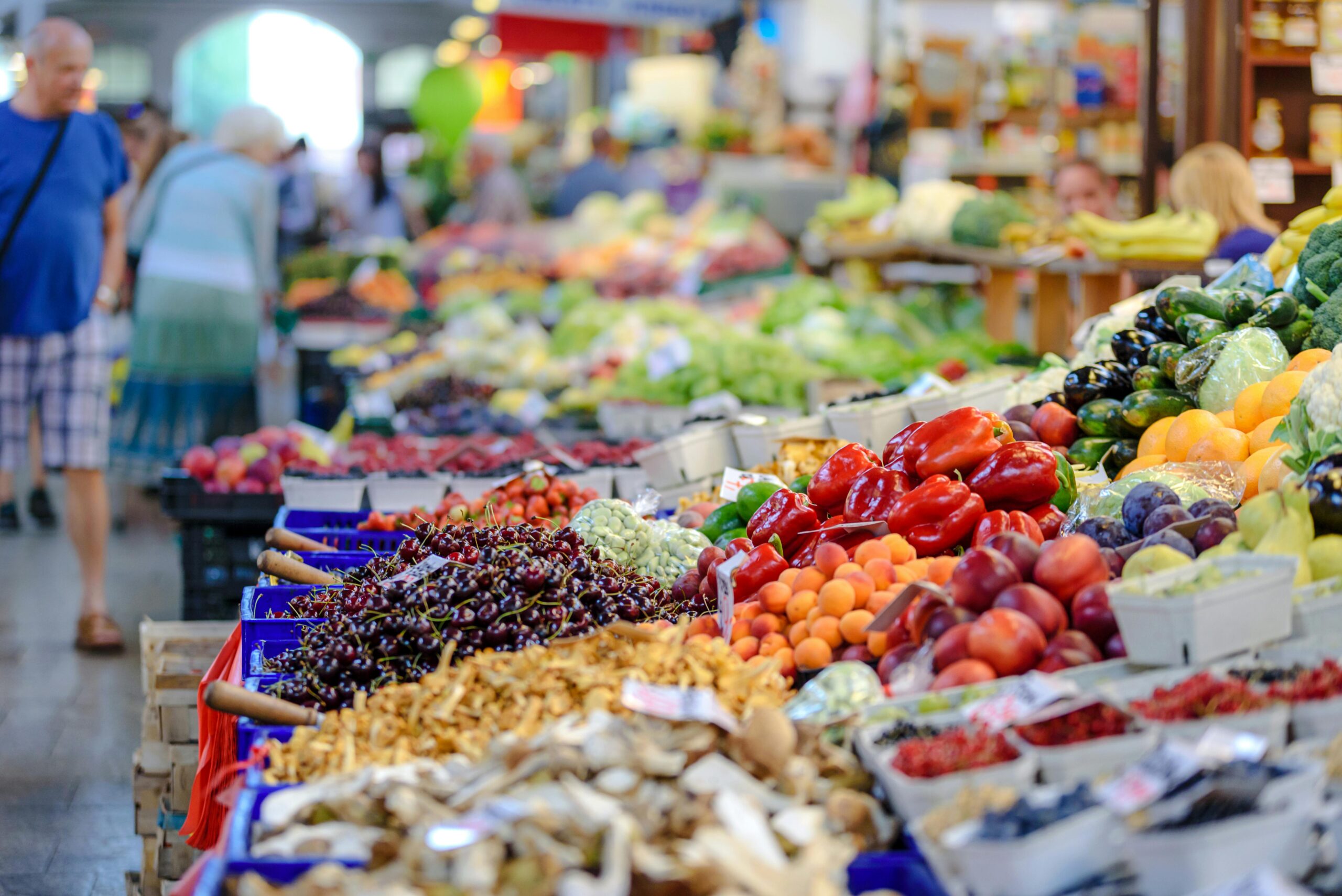Welcome to our blog where we delve into the fascinating world of agri-food systems. In this article, we will explore the future of these systems, focusing on sustainable solutions that can ensure a thriving food industry for generations to come. Agri-food systems play a crucial role in feeding the world’s growing population, but they also face numerous challenges. Join us as we uncover innovative approaches and discuss the potential of technology, policy changes, and collaborative efforts to create a more sustainable and efficient agri-food system. Let’s dive in!
Understanding Agri-Food Systems
Before we delve into the future of agri-food systems, it’s important to have a clear understanding of what they entail. Agri-food systems encompass all the activities involved in producing, processing, distributing, and consuming food. This includes everything from farming and harvesting crops to packaging, transporting, and selling food products.
Agri-food systems are complex and interconnected networks that involve various stakeholders, such as farmers, suppliers, retailers, and consumers. These systems can vary widely depending on factors such as geography, climate, culture, and economic conditions. Understanding the intricacies of agri-food systems is essential to identify the challenges they face and develop effective solutions.
The Challenges Faced by Agri-Food Systems
Agri-food systems face a myriad of challenges that need to be addressed for a sustainable future. Here are some of the major challenges:
- Climate Change: Rising temperatures, changing precipitation patterns, and extreme weather events pose significant risks to agricultural productivity and food security.
- Resource Scarcity: Limited availability of land, water, and energy resources can hinder the efficiency and productivity of agri-food systems.
- Food Waste: A significant amount of food is wasted at various stages of the agri-food system, from production to consumption, leading to economic losses and environmental degradation.
- Loss of Biodiversity: Intensive farming practices and habitat destruction contribute to the loss of biodiversity, impacting the resilience and long-term sustainability of agri-food systems.
- Social Inequity: Inequalities in access to resources, markets, and technology can hinder the development and success of agri-food systems, particularly for small-scale farmers and marginalized communities.
Addressing these challenges requires innovative approaches, collaboration among stakeholders, and a commitment to sustainability. In the following sections, we will explore potential solutions and advancements that can shape the future of agri-food systems.
Advancements in Technology and Automation
Technology has the potential to revolutionize agri-food systems, making them more efficient, sustainable, and resilient. Here are some notable advancements:
Precision Agriculture
Precision agriculture utilizes technologies such as sensors, drones, and satellite imagery to monitor and manage crops with precision. This enables farmers to optimize resource allocation, reduce waste, and improve yields. By analyzing real-time data on soil moisture, nutrient levels, and pest infestations, farmers can make informed decisions and apply inputs only where and when needed.
Vertical Farming
Vertical farming involves growing crops in vertically stacked layers, often in urban environments. This innovative approach maximizes land use and reduces transportation costs. Controlled environments with LED lighting, hydroponic or aeroponic systems, and automated climate control enable year-round production, independent of weather conditions. Vertical farming also reduces water consumption and pesticide use.
Blockchain in Supply Chain Management
Blockchain technology offers transparency and traceability in the agri-food supply chain. By recording every transaction and movement of food products on a decentralized ledger, it becomes easier to identify and address issues like food fraud, contamination, and inefficiencies. Consumers can verify the authenticity and quality of products, while farmers can receive fair compensation for their produce.
Robotics and AI
Robots and artificial intelligence (AI) are increasingly being integrated into agri-food systems. Robotic systems can perform tasks such as planting, harvesting, and sorting with precision and efficiency. AI-powered algorithms can analyze vast amounts of data to optimize production, predict crop diseases, and automate decision-making processes, leading to improved productivity and reduced environmental impact.
These technological advancements hold great promise for the future of agri-food systems. However, it is important to ensure access to these technologies for all farmers, regardless of their scale or location, to promote inclusivity and avoid exacerbating existing inequalities.
Sustainable Practices and Policies
To ensure the long-term viability of agri-food systems, it’s crucial to adopt sustainable practices and implement supportive policies. Here are some key areas of focus:
Regenerative Agriculture
Regenerative agriculture involves practices that restore and enhance soil health, biodiversity, and ecosystem functions. Techniques like cover cropping, crop rotation, and conservation tillage help improve soil fertility, water retention, and carbon sequestration. By prioritizing soil health, regenerative agriculture promotes resilience and reduces the reliance on synthetic inputs.
Agroecology
Agroecology emphasizes the integration of ecological principles into agricultural systems. It aims to minimize environmental impact while maximizing productivity. This approach focuses on diversifying crops, promoting natural pest control, and enhancing biodiversity. Agroecology also emphasizes the importance of local knowledge and farmer-led innovation.
Sustainable Supply Chains
Creating sustainable supply chains involves reducing food waste, minimizing greenhouse gas emissions, and ensuring fair trade practices. Collaboration among farmers, processors, retailers, and consumers is crucial to optimize logistics, improve traceability, and promote ethical sourcing. Sustainable supply chains prioritize local and seasonal produce, reducing the environmental footprint associated with long-distance transportation.
Policies for Resilience
Government policies play a vital role in supporting sustainable agri-food systems. This includes providing incentives for sustainable practices, investing in research and development, and fostering market access for small-scale farmers. Policies that prioritize resilience can help farmers adapt to climate change, cope with market fluctuations, and ensure food security for all.
By promoting sustainable practices and implementing supportive policies, we can create agri-food systems that are not only environmentally friendly but also economically viable and socially equitable.
Collaboration and Knowledge Sharing
Achieving a sustainable and resilient agri-food system requires collaboration among various stakeholders and the sharing of knowledge and best practices. Here’s how collaboration can drive positive change:
Public-Private Partnerships
Public-private partnerships can bring together the expertise, resources, and networks of both sectors to address challenges in the agri-food system. Collaborative initiatives can focus on research and development, innovation, and capacity building. By combining the strengths of the public and private sectors, these partnerships can drive meaningful and impactful change.
Knowledge Exchange Platforms
Creating platforms for knowledge exchange allows farmers, researchers, policymakers, and industry professionals to share experiences, research findings, and successful practices. These platforms can take the form of conferences, workshops, online forums, or farmer field schools. By fostering a culture of learning and collaboration, we can accelerate innovation and problem-solving within the agri-food system.
International Cooperation
Agri-food systems are global in nature, and addressing their challenges requires international cooperation. Sharing best practices, technologies, and policies across borders can help improve productivity, enhance sustainability, and ensure food security on a global scale. Collaborative efforts can also address issues like trade barriers, market access, and the impact of global events on the agri-food system.
Empowering Local Communities
Engaging and empowering local communities is essential for the success of agri-food systems. By involving farmers, indigenous communities, and other local stakeholders in decision-making processes, we can ensure that their voices are heard and their knowledge and traditions are preserved. This inclusive approach can lead to more sustainable and culturally appropriate solutions.
Through collaboration and knowledge sharing, we can build a stronger and more resilient agri-food system that meets the needs of both present and future generations.
Consumer Awareness and Empowerment
Consumers play a crucial role in shaping the agri-food system through their purchasing decisions and advocacy. Here’s how consumer awareness and empowerment can drive positive change:
Educating Consumers
Increasing consumer awareness about the impact of their food choices can drive demand for sustainable and ethically produced products. Education campaigns can highlight the importance of supporting local farmers, choosing organic and fair-trade options, and reducing food waste. By understanding the consequences of their choices, consumers can make more informed decisions and support a more sustainable agri-food system.
Supporting Local and Sustainable Food Systems
Consumers can contribute to a more sustainable agri-food system by supporting local and sustainable food systems. This includes purchasing locally grown produce, supporting farmers’ markets and community-supported agriculture (CSA) programs, and choosing products with certifications such as organic, fair trade, or Rainforest Alliance. By prioritizing these options, consumers can promote environmentally friendly practices and support local economies.
Reducing Food Waste
Food waste is a significant issue within the agri-food system, and consumers can play a part in reducing it. By planning meals, storing food properly, and repurposing leftovers, consumers can minimize waste at the household level. Additionally, supporting initiatives that redistribute excess food to those in need can help address food insecurity and reduce the environmental impact of food waste.
Advocacy and Policy Engagement
Consumer advocacy and engagement in policy discussions can drive systemic change within the agri-food system. By voicing concerns, supporting initiatives, and engaging with policymakers, consumers can contribute to the development of policies that prioritize sustainability, transparency, and fairness. Consumer demand and pressure can influence the behavior of businesses and policymakers, leading to positive changes in the agri-food system.
By being informed and empowered, consumers can become catalysts for change within the agri-food system, creating a demand for sustainable and ethically produced food.
In conclusion, the future of agri-food systems lies in sustainable practices, technological advancements, collaboration, and consumer empowerment. By addressing the challenges posed by climate change, resource scarcity, food waste, and social inequity, we can create a more resilient and efficient food industry.
Advancements in technology, such as precision agriculture, vertical farming, blockchain, and robotics, offer promising solutions for optimizing resource usage, increasing productivity, and ensuring transparency in the agri-food system. However, it is essential to ensure equitable access to these technologies to avoid exacerbating inequalities.
Embracing sustainable practices like regenerative agriculture, agroecology, and promoting sustainable supply chains can enhance the long-term viability of the agri-food system. Supportive policies and international cooperation are crucial in fostering a conducive environment for sustainable practices.
Collaboration among stakeholders, knowledge sharing platforms, and empowering local communities play a pivotal role in driving positive change. By involving farmers, researchers, policymakers, and consumers in decision-making processes, we can create inclusive and culturally appropriate solutions for a more resilient agri-food system.
Consumer awareness and empowerment are vital in shaping the agri-food system. Educating consumers, supporting local and sustainable food systems, reducing food waste, and engaging in advocacy can drive demand for sustainable products and influence policy changes.
As we navigate the complexities of the agri-food system, let us strive for a future where food production is sustainable, equitable, and resilient, ensuring a thriving food industry for generations to come.

